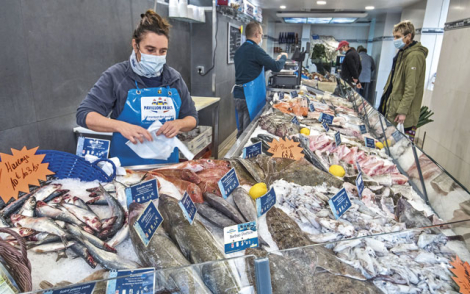|
10 billion euros
The weight of organic
products in France.
+1 billion euros/year
Organic products’ growth.
|
|
PDM: The world of mass consumption is currently undergoing major changes...
Xavier Terlet : Over the last 5 years, it has experienced even more mutations than in the previous 40 years! For decades, customers had been quietly consuming what was offered to them. And, with the exception of a few scandals, everyone was happy with the situation. Today, consumers are more demanding because they can get immediate access to all kinds of information. They can act very quickly, or refrain from buying. A “super consumer” is born.
Can new technologies explain this development?
X.T.: Consumers themselves are changing. New technologies only act as a catalyst. With the blockchain, the quality of information changes. Traceability becomes perfect. Applications such as Yuka or videos broadcast by animal welfare activists are disrupting consumer choices in the sense that they make them act immediately.
Are young people changing their consumption patterns?
X.T.: Like Greta Thunberg, young people think the world is in bad shape and they refuse to consume like their elders. They favour a more committed way of behaving. They can stop eating meat or fish, refuse to buy bottled water, try the “February without a supermarket” challenge, etc.. Yet tomorrow, they will be the ones pushing the shopping cart and this scares the old industrial world.
How can this impact seafood products?
X.T.: The seafood industry is lagging far behind in terms of advice and information. Apart from salmon or cod, the consumer knows nothing about seafood products. They still need to be educated about species, preparation methods, resource preservation, etc. Furthermore, seafood products have historically played the card of tradition and naturalness, and therefore the card of wildlife. Over the last 10 years, however, expectations have changed. Today’s young people find fish farming more reassuring. They favour controlled farming rather than the products of fisheries. Consumers are questioning heavy metal poisoning, drift nets, trawls which scrape the ocean floor... The notion of the well-being of fish is slowly emerging, even if the emotional attachment is not as obvious as for livestock. The industry needs to revise its processes more quickly than it does at present otherwise new scandals will break out.
Do certifications help to reassure consumers?
X.T.: A certification only makes sense if it is understood by the consumer. However, regarding seafood products, the French consumer does not know and does not understand the MSC or ASC certifications. This situation cannot last. The market of organic products is exploding but is only part of the answer. Organic food meets the need for reassurance but not other expectations such animal welfare, health, citizenship or local production. These needs cannot be met by organic food alone. Brands must show that they are not just “hiding” behind a certification, they really need to go further to meet consumer needs.
What are the avenues for development in each department?
X.T.: Each supermarket department is of interest. The “traditional” fish counter will work perfectly if you provide it with means and “expert” fishmongers. In small supermarkets, fresh-packed fish is often more relevant. Seafood delicatessen products meet the need for pleasure and are usually well managed by retailers while some segments remain under-exploited. It is a pity, for example, that canning companies do not try to move away from a “kitchen cupboard essentials” positioning, without exploring more sophisticated avenues. Another interesting area, which is currently emerging in the United States, is that of “good protein”. Alongside meat and pulses, proteins from the sea have a place to take. Seafood products have a hell of a potential which really deserves to be emphasized.
Interview by Fanny Rousselin-Rousvoal
Translation: Catherine ROUSSEY
|

